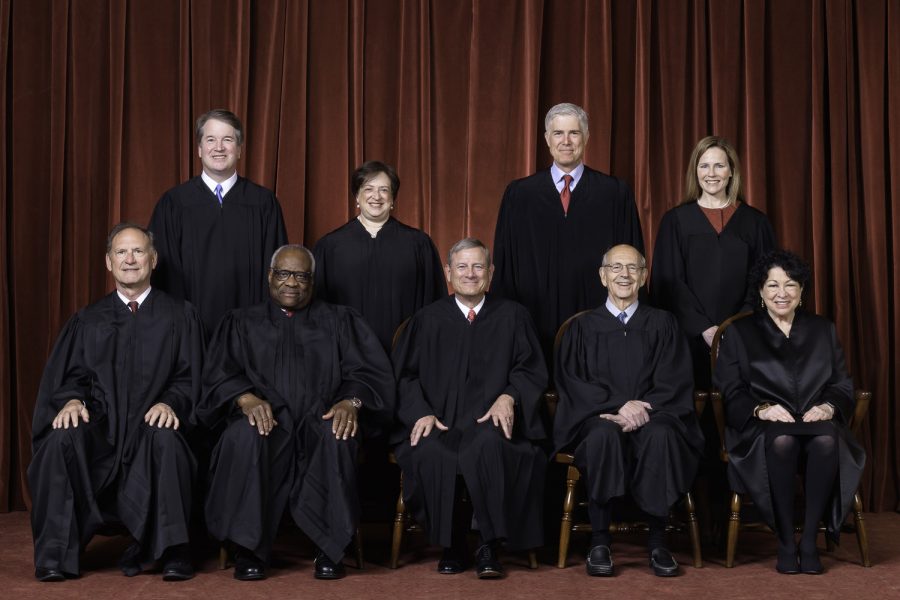Supreme Court to Hear Consequential Cases
Abortion, gun rights, religious freedom all on the docket
On Monday October 1, the Supreme Court of the United States began their newest term. This term will continue until late June or early July and many pivotal cases involving major social issues such as abortion, guns, and religion will be debated throughout. This is the first time that all of the justices have been gathered together in the courtroom since the start of the Covid-19 lockdown more than a year ago and the court has significantly changed composition since. After the appointment of three new justices by president Trump, Amy Coney Barrett, Brett M. Kavanaugh, and Neil M. Gorsuch, the court now has six conservative-leaning members, which may severely impact the rulings of these new cases.
In December, the court will hear a case that could potentially challenge the abortion protections established under Roe v. Wade, which determined that women have a right to terminate a pregnancy up to the point where the fetus could survive outside of the womb or around 24 weeks. The case, Dobbs v. Jackson Women’s Health Organization, centers on a 2018 Mississippi law that bans abortion after 15 weeks with very few exceptions. It is likely that the court will rule to restrict abortion rights after they voted with a five to four majority not to intervene when the Texas law that bans most abortions went into effect.
The Supreme Court will also be hearing a case challenging a New York law that requires a person who wants to carry a gun outside of the home to receive a special license. In the case titled New York State Rifle & Pistol Association v. Bruen gun owners are claiming that the law violates the Second Amendment of the Constitution, which guarantees citizens the right to bear arms. The law requires gun owners to receive a special license, issued by local authorities, after a reasonable cause for carrying the gun is shown in order to carry a gun outside of their home. The gun owners involved in this case were turned down their permit because they didn’t have a pressing reason to carry the gun outside of home for self-defense. The case’s decision could impact concealed-carry laws in the country.
The court also agreed to hear a case involving a school funding program in Maine that excludes schools that teach religion, Carson v. Makin. Maine is a very rural state that has 260 administrative districts or small rounds. Around half of these towns are not large enough to have public schools, so people in towns without public schools must either pay for their children to attend public schools in other districts or to attend a private school. Towns can contract with other towns to take their students or they can pay for tuition for them to attend the public or private school of their choice. However, the state refuses to fund students who attend religious schools. Parents who intended to send their children to a private Christian school challenged the law, saying it violated their right to exercise their religion freely. This decision could have implications for religious freedom cases in the future.
The Supreme Court now leans conservatively, threatening to impact the many major social issues which have been placed on this new docket.








Stephanie Lipkowitz • Oct 16, 2021 at 8:31 am
excellent overview about really important issues!